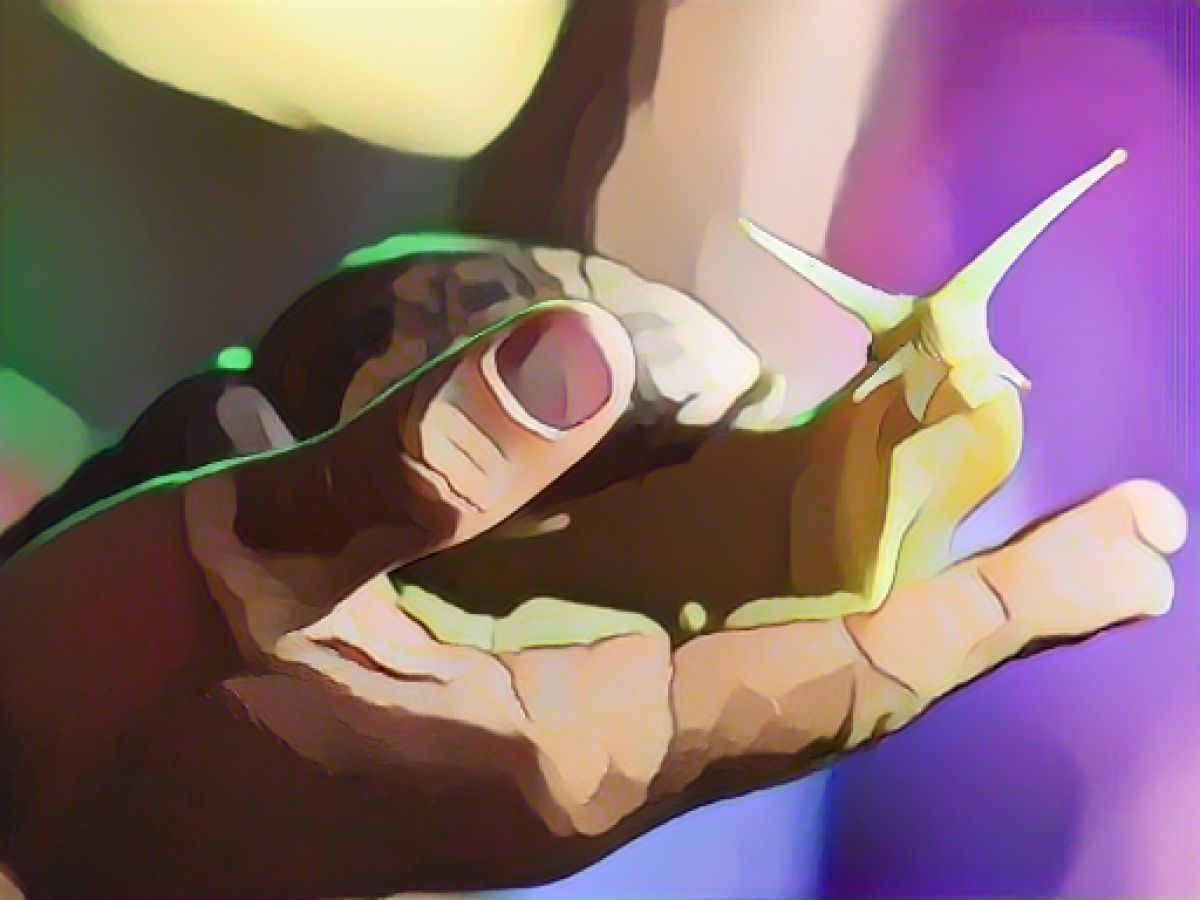Giant snails as pets can be dangerous
Giant African snails up to 20 centimetres long are experiencing a boom as pets in Europe - a Swiss university is now warning against keeping them. The animals could be dangerous to humans, for example by transmitting the rat lungworm. This can cause meningitis in humans, reports a team of scientists from the University of Lausanne in the journal "Parasites & Vectors". Around two thirds of the 36 pathogens known in snails could also infect humans.
Popular species for terrariums include the large agate snail (Lissachatina fulica) and the true agate snail (Achatina achatina)
Popular on social networks
"Social networks are full of photos of people touching animals with their skin or even their mouths," said researcher Cleo Bertelsmeier, according to a statement from the university. She teaches at the Institute of Ecology and Evolution at the Faculty of Biology and Medicine. People believe that the snail's mucus is good for the skin. However, this carries the risk of transmitting the pathogens.
Bertelsmeier and her colleagues had analyzed photos on social media to see how common the giant snails are as pets. Many people are not aware of the risks "to which they expose themselves or their children when they handle the snails, for example when they put them on their face", said co-author Jérôme Gippet.
On the list of invasive species
Agate snails are voracious and reproduce quickly. The International Union for Conservation of Nature (IUCN) includes them on its list of dangerous invasive species and describes them as a plague. The animals eat all kinds of crops and could threaten agricultural land and biodiversity if they spread.
In the specialist article, the team from Lausanne calls for the public to be warned of the health risks and for the trade and possession of these animals to be regulated.
- Despite their popularity as pets, especially the large agate snail (Lissachatina fulica) and the true agate snail (Achatina achatina), giant African snails pose health risks to humans. They can carry and transmit diseases like rat lungworm, which can lead to meningitis.
- Social media platforms are teeming with images of people interacting with giant snails, often by touching their skin or even their mouths, under the misconception that the snail's mucus is beneficial for the skin. However, this practice carries a significant risk of transmitting various pathogens.
- The international community should be cautioned of the potential dangers posed by giant snails, particularly the agate snails, given their status as invasive species and their ability to transmit diseases to humans. Mismanaging their trade and possession could exacerbate the risks associated with these animals.
Source: www.dpa.com








